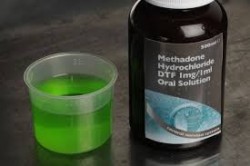Types of Treatment Offered in Codeine Rehab
Codeine is a narcotic drug used for a variety of medical purposes and is often found in prescription cough syrups and pain medications. As a highly praised medication with less opioid side effects and 1/10 the level of morphine potency, physicians may prescribe codeine cough syrup to children as well as adults. Long term use and abuse of codeine medications can lead to physical dependency and possibly, addiction.
Codeine Abuse
Physical dependency to codeine can lead to abusive behaviors that involve other drugs or alcohol and this puts the person at risk for health complications including overdose. Codeine is a choice drug to abuse because it so readily available on the street, in the family medicine cabinet, and increasingly more people are finding codeine liquids easy to abuse in public places by drinking codeine liquid straight or mixed with other solutions, known as “sippin on syrup”. This allows the person to get “high” without increased suspicion of what they are doing.
Codeine Rehab
Chronic or long term use of codeine causes physical dependence where withdrawal symptoms may occur when the person suddenly stops the medication. Gradual detox is recommended, but, in many cases a codeine rehab is necessary to ensure safety during the process. After the individual is clear from the drug and stabilized, program interventions such as counseling, therapy, and relapse prevention methods can be implemented to help them remain sober. According to the National Institute on Drug Abuse, “Addiction treatment must help the individual stop using drugs, maintain a drug-free lifestyle, and achieve productive functioning in the family, at work, and in society.”
Types of Treatment Offered in Codeine Rehab

Methadone and similar medications are often used in codeine addiction treatment.
There are outpatient and inpatient codeine rehab treatment programs available for detox and withdrawal management. Some types of treatment offer medically assisted detox where under the supervision of a physician and professionals, medications can be administered to reduce cravings and ease withdrawals. Common medications that might be used are Methadone, Buprenorphine or Naltrexone.
The next phase of treatment will vary according to the needs of the person, and the resources and programs offered by the facility. A formal assessment of the individual will determine which types of therapy and counseling will be most beneficial. There are individual and group therapy sessions as well as a variety of counseling options that may address family and other social issues. Behavioral therapies are a major component to codeine therapy. The most common types are cognitive behavior therapy, contingency management therapy, motivational interviewing, and family or couple treatment.
After care and follow-up treatment services may include support groups, 12-step meetings, and other ongoing services to ensure continued abstinence.